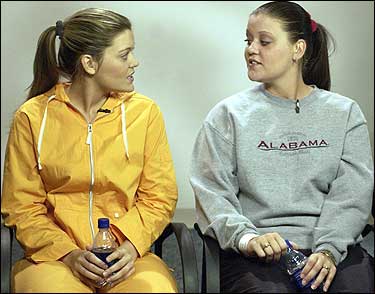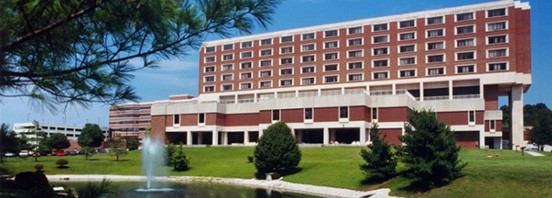
“Woman Gives Twin Ovary for Transplant”
By CHERYL WITTENAUER, AP
ST. LOUIS (April 23) – Melanie Morgan and Stephanie Yarber are 24-year-old identical twins and best friends. They look alike, pull their hair back in ponytails the same way, and finish each other’s sentences. The one thing they don’t share is the ability to have children. Morgan has three little girls. Yarber hasn’t had a period since she was 13.

In a rare operation on Wednesday, ovarian tissue from Morgan was transplanted into Yarber in an effort to make her fertile.
The two women, both residents of Muscle Shoals, Ala., were doing well on Thursday. Dr. Sherman Silber, who led the transplant team, said he expects Yarber to begin menstruating in three months and hopefully become pregnant “the old-fashioned way.”
Yarber had unsuccessfully tried in vitro fertilization twice.
“This will require no follow up, no in vitro fertilization, no donor eggs,” Silber said Thursday. “It’s a perfect situation. There won’t be rejection.”
It is believed to be the first such attempt in the United States. Surgeons at China’s Zhejiang Medical Science University reported a successful whole ovary transplant between sisters there a year ago.
Silber and other experts said the operation done Wednesday would not be an approach with wide use anytime soon. The fact that Yarber’s donor was her identical twin is the reason she won’t require anti-rejection drugs.
“We are very close,” Yarber said in an interview Thursday at the hospital. “It takes a special person, but that’s Melanie. She didn’t hesitate when I asked her about it.”
In the five-hour operation, gynecologist Dr. David Levine laparoscopically removed one of Morgan’s ovaries and passed it to Silber in another room, where he removed its outer tissue rich with egg-producing follicles. Through a small incision, Silber microsurgically sutured the tissue to each of Yarber’s non-producing ovaries.
Silber, director of the Infertility Center of St. Louis at St. Luke’s Hospital, said the surgery may hold promise for women who have cancer. Someday, they might be able to have their ovaries removed and frozen before undergoing chemotherapy, then later, when cancer-free, have them reimplanted.
Or such a transplant could be useful between non-related women, but only if anti-rejection medicines became safer.
The procedure’s “wildest” possible spinoff – and one that would require ethical and social review – is the opportunity for young women who want to postpone pregnancy until their 40s when they’re professionally ready to have children, Silber said. As 20-year-olds they could have ovarian tissue removed and frozen, and transplanted back in their 40s.
But Silber and his team hope the greatest benefit of Wednesday’s ovary transplant will be subsequent DNA work isolating the gene that caused Yarber to become menopausal at age 13. That should enable scientists to learn genetically what causes infertility, he said.
DNA material from the twins will be researched at several institutions.
“Those genetic answers will give us clues to what causes female infertility,” said Silber, who has challenged fertility barriers over the years.
“With this extremely rare set of twins, it’s an enormous opportunity” to isolate and study the genes that supply eggs, he said. “It’s key to determining the fertility of women as they get older.”
Silber, a 62-year-old urologist, developed the first microsurgical vasectomy while teaching in Melbourne, Australia, in 1973. He said he did the first tubal ligation reversal using microsurgery in 1977 in St. Louis. He called the ovary transplant the first of its kind with twins.
Dr. Jamie Grifo, director of reproductive endocrinology at New York University Medical Center, said he knows and respects Silber, but was unfamiliar with this week’s procedure.
“It’ll be great if it works,” he said.
